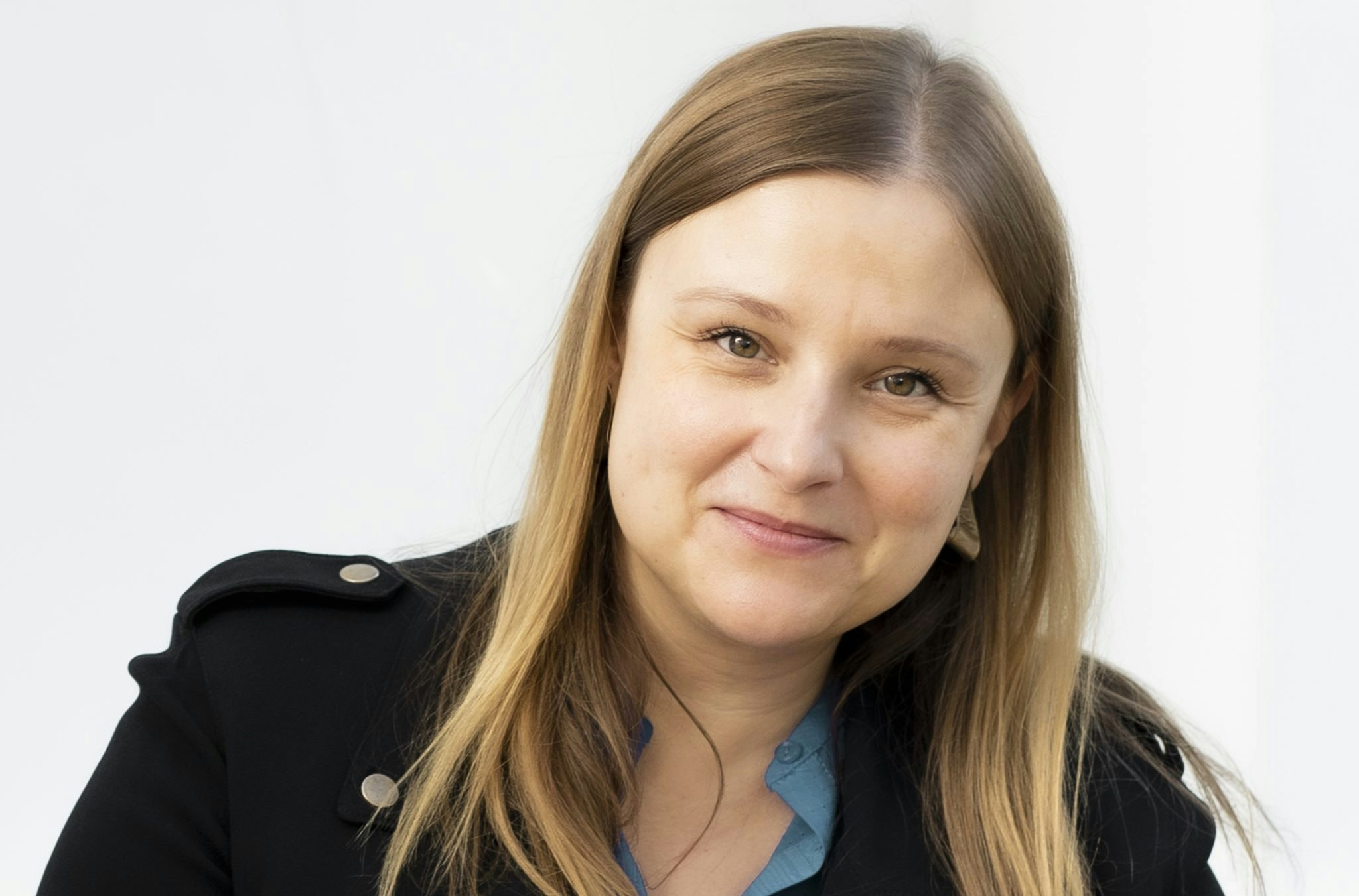Suranga Chandratillake doesn't know who I am when he arrives at Granger and Co in London’s King’s Cross for brunch. He sits down at the table next to me — and I have to give him an awkward wave.
Chandratillake is one of Europe’s best-respected VCs; the kind who others want to have as a mentor and recruiters tell me candidates really, really want to work with. He joined top-tier VC firm Balderton as a general partner in 2014, and has since invested in the likes of Wayve, Beauty Pie, Contentful, Vivino and Tessian.
While the founder-to-VC path is well-trodden in the US, he’s one of the rare European VCs (just 8% of UK VCs had previously worked in startups in 2019) who has been on the other side of the table.
His advertising tech company Blinkx listed on the London Stock Exchange in 2007, reaching a peak market capitalisation of $1bn. Before that, he was an early employee and eventual US chief technology officer at UK software giant Autonomy.
His journey has given him an OBE after his name and some pretty cool knowledge about chickens. The “really quite shitty job” of being a founder has also taught him how, and when, to simply listen, he says.
“When someone’s going through a tough patch, the natural inclination is to try and solve the person's problem, when of course, as we all know, the problem often can't be solved, we just need someone to be there and listen to you.”
Chandratillake’s flat white and my orange juice have appeared, and I feel like he’s relaxed a bit. He’s swearing, and that’s always a good sign.
Uni days
We go back in time to his student self at Cambridge University in the ‘90s, where he was involved in student politics, was a competitive rower (“a cox, given my scale”) and became an editor of Varsity, the student newspaper.
“I basically had two things that drove me. One thing was making money — I really, really wanted to make money. And the second thing was being part of a close-knit team. And both things come from my past.”
He says that the desire to make money came from the fact that he’s a first-generation immigrant whose parents “were not well off”.
“I had a wonderful childhood, but I was constantly aware of the fact that we didn't have money.”
I was a tragic, incredibly sad, geeky programmer for most of my teen years…
His computer science degree set him on his eventual path to entrepreneurship — though he says it wasn’t cool at the time.
“I started programming when I was eight years old. I was a tragic, incredibly sad, geeky programmer for most of my teen years… Now it’s cooler than it was; it really wasn’t cool when I was a child.”
I find this kind of self-deprecating Britishness extremely endearing.
Balderton
These days, he gets to experience that energy of tight-knit teams by working with early-stage startups.
“At [seed and Series A], you can look at the market and at the product, and hopefully you know a bit about the space you’re investing in. But at the end, a big part of it is the people — obviously the founders, but also the rest of the team as well.”
Still, returning to founder life doesn’t look very tempting, he says. “I think I’m in [VC] for the long term. [Being a founder] has to do with really just focusing and focusing and focusing, and really trying to cut out all the noise. I think that that narrowness is sort of a blessing and a curse.”
As an investor, Chandratillake gets to be more than a world expert on online video advertising. (“That’s not what I set out to do with my life.”)
It’s a funny job; it can take 10 years to know if you made the right decision or not
“It’s a funny job; it can take 10 years to know if you made the right decision or not. And things can appear to be going well for seven of those 10 years, and then go wrong. And the opposite can happen as well.
“And yet because the industry is full of these hyper-competitive hardcore types, everyone’s really obsessive about the competition, inevitably. And so every time we have an offsite, we all sit there, all 30 of us, poring over some analysis saying, ‘Which ones did we do? Which ones did Index do? Oh shit, how did we miss that one they did in Romania?’ And everyone’s beating themselves over the back for missing that one in Romania. Rob’s saying, ‘That’s it, I’m going to go to Romania four times a year instead of five times a year’... I’m joking, but it ends up that sort of vibe. But then five years later, you find out that that company was rubbish, and you’re like, ‘of course it’s a silly idea, but we knew it was a silly idea’.”
As for what areas he’s long on now, Chandratillake won’t be drawn. “I would refrain from saying we’re excited about sector X or Y, because honestly, it’s such bullshit.”
Balderton has, however, spent a lot of time looking at the stuff everyone’s been looking at in the past few years — crossover tech and life sciences, and sustainability; both the “easy” to invest in software (like France’s Sweep) and the “bit more out there” stuff like Cambridge-based Better Origin, an insect tech startup which raised a $16m Series A led by Balderton in 2022.
I ask Chandratillake for a good insect fact. He does not disappoint.
For context, Better Origin creates insect farms inside shipping containers, where food waste is eaten by larvae which then grow into insects to be fed, still wriggling, to farm animals.
“When you feed the chickens live insects, they’re happier,” Chandratillake tells me. “This is scientifically proven now with some research we did with Cambridge. They fight less, they’re healthier, they sleep better and they have a better heart rate. I just love that.”
Back to Cambridge
Chandratillake lives in Cambridge with his scientist wife Gemma in a “chic family home”.
One disappointment is that he hasn’t yet got a portfolio that’s overflowing with Cambridge startups.
“I lived in San Francisco for a long time, and I had a bunch of VC friends there and they used to always rave about being a short drive from every board meeting.
“I love the idea of being a short cycle from every board meeting… But I’ve struggled. I’ve backed three companies that came out of the Cambridge ecosystem; two of them are now mainly here. [One of them is autonomous vehicle startup Wayve.] The reality is where Cambridge has been strongest is biotech and life sciences, which is not an area that we invest in that much.”
Does he think that’s changing, I ask, as biotech becomes more tech than bio?
“Yes, for sure. So we’ve looked at way more than we’ve ever done before. And one of the companies we have backed is [drug discovery platform] Healx.
I love the idea of being a short cycle from every board meeting… But I’ve struggled
“But for me, it’s a bit frustrating… I don’t see why there can’t be consumer tech companies. If you look at Stanford and the Palo Alto ecosystem, it’s created plenty of social networks and stuff like that as well.”
Chandratillake reckons not enough students have caught the entrepreneurial bug yet.
“It's more just that it's a comfort zone thing where a lot of the companies are still set up by professors or PhDs or postgrads in computer science or biology or whatever… What's happened a lot more at Stanford, I think, and to an extent at MIT, is the sort of tech entrepreneurialism thing has bled into everything. And so you have historians or MBAs sizing up companies and then you get a much healthier mix of different types of businesses.”
That isn’t the only way the university, and potential founders, are missing out.
Chandratillake is a member of the Cambridge University Endowment Fund Investment Advisory Board — and says “it’s fascinating to compare how the big private US universities tap their alumni” for cash in comparison to UK universities.
“They haven’t tapped into a fraction of what they could tap into.”
We need more of the Michael Moritz mentality over here, he says; the Sequoia partner and Oxford alumnus donated £75m to the university to help students from low-income families, the largest gift of its kind in Europe when it was made in 2012.
There’s also the question of IP — but here Chandratillake says the picture is less bleak than it’s made out to be. “If you look at Imperial, Oxford, Cambridge, Edinburgh, ETH in Zurich… they’re all doing a better job than we would normally give credit for. Some of them have really progressive views on IP and ownership. At Cambridge computer science you can take all the IP if you wanted, it’s all yours to walk away with.”
The side hustles
Like any good VC, Chandratillake doesn’t just have the one side hustle.
He also sits on the UK’s Council for Science and Technology — “a sort of advisory thing that reports to the prime minister”.
One big opportunity the government sees for post-Brexit Britain? Regulation. “The ability to be more responsive, more agile…”
Does he really think that will pan out?
“My experience of it is that the government moves incredibly slowly. When it does finally move, it changes things overnight. It is frustrating — but I do think it is moving.”
The global talent visa, which many Balderton portfolio companies are successfully using now, he says, is a good example. “That was about four or five years' worth of effort… These things do work when they work, but it just takes time.”
Diversity VC
My avocado on toast is long gone and Chandratillake’s scrambled eggs are stone cold — but there’s time for one more topic dear to both of us: diversity in tech.
Chandratillake sits on the board of Diversity VC, an organisation launched in 2017 to encourage the industry to become a little less homogenous.
“When it first started, the big problem was that people didn't even know it was a problem. And if they'd been told about it, they didn't really believe it or accept it,” says Chandratillake.
Now that’s not such an issue — and the focus is on getting diverse talent through the door and up to the investment committees. Future VC, Diversity VC’s internship programme, is a “key component” of this.
“It’s one of the things I'm actually most proud of and I think will be one of the best things we ever did. The fact that we now have like 50 or 60 non traditional background interns in the top VC firms across Europe every year is absolutely brilliant,” he says. Internships are six months long — and paid — and include masterclasses and mentoring from folks like Chandratillake. Interns are vastly more diverse than the industry; 47% of the 2021 cohort identified as women, 49% as BAME and 20% were the first in their family to go to university. “That programme keeps getting bigger every year, and is having a bigger and bigger impact every year.
“Before that, honestly, most interns were someone's son or daughter — generally son. Even now I get those emails where a peer VC at another firm will send me an email saying, ‘Hey, my son is 18. He's pretty mediocre. He doesn't really know what he's doing in life. But he'd like to do an internship at your firm. Would you do it?’
“It’s absolutely terrible. And now all of our interns come from Future VC.”
It’s hard to change an industry overnight, especially one that is an apprenticeship sort of industry
Finding more diverse senior talent is harder.
“We thought the shortcuts might be operators or bankers,” says Chandratillake; Balderton has just one female partner against seven male investment partners. “Random bankers often don’t make great VCs, turns out. Operators are almost as bad, if not worse, especially from a gender perspective.
“It’s hard to change an industry overnight, especially one that is an apprenticeship sort of industry and also one which feeds from the industry it invests in, which is also highly non-diverse.”
At this point in the conversation, I get some unsolicited reader feedback.
“I do think your focus on diversity [at Sifted] has been annoying to many, but really helpful to those of us who are kind of pushing for this. If you’re inside a firm and trying to push an agenda, it’s helpful.”
I take that as a compliment, pay the bill and store Chandratillake’s WhatsApp safely in my phone.


